Report on participation in Seedcamp Berlin
 Recently on Habré already published an article about the experience associated with the publication on TechCrunch and other articles on the international experience of Russian startups. I also want to share with the habrasoobschestvom experience, which we received at Seedcamp'e , held this week in Berlin, especially since such a level of activities for startups in Russia is not there and positive emotions just going through the roof .
Recently on Habré already published an article about the experience associated with the publication on TechCrunch and other articles on the international experience of Russian startups. I also want to share with the habrasoobschestvom experience, which we received at Seedcamp'e , held this week in Berlin, especially since such a level of activities for startups in Russia is not there and positive emotions just going through the roof .It all started with the fact that about 3 weeks ago I accidentally stumbled upon information about the event, now I don’t even remember where exactly, and decided that we should try our hand. I had an idea about Seedcamp as an accelerator # 1 in Europe, but I never watched their events especially. Immediately after making the decision to try strength, I started filling out the questionnaire, especially since there were only a couple of days left until the end of the application submission period. The questionnaire consisted of a rather standard set of questions for such events about the founders, the company, our strengths and characteristics. On some of the questions I already had blanks, including in English - we participated in two start-up events in St. Petersburg - StartupWeekend at the end of 2011 and not so long ago in StartupSauna. To questions for which there were no ready-made answers, he answered directly from his head, especially without being chased. In total, everything took about 2 hours to complete in filling out, it helped that the questionnaire could be saved and then continued to be filled out.
')
Frankly, I didn’t really expect that we would be invited, and didn’t think much about the event, but the next day after the scheduled deadline a letter came from the organizers that we were among the teams that had passed the preliminary selection. Attached to the letter was an agreement on the conditions of participation and confidentiality, which had to be signed and sent before May 8th, and thus confirming the possibility of our participation. In addition, the letter emphasized that prior to official permission, we should not disclose information about our possible participation in the event. The contract immediately says about the conditions on which the accelerator invests in the projects selected at the event (50.000 euros for 8-10% of the business). Almost immediately after sending the scan of the signed document, we received a reply that the final decision on our participation will be made within two days. On the afternoon of the 9th, worrying that tickets to Berlin would be prohibitively expensive, I wrote to the organizers whether they decided to participate. In the evening, the answer was that yes - we are among the participants. On the same day, a conference call was organized for the participants, in which we, like, by the way, most of the other participants could not take part.
The program of the event, which was sent to all participants, was on May 14 - preparatory day (mandatory participation), May 15 - main day (pitches and communication with mentors, of course, also mandatory), May 16 - communication with those whom Seedcamp chooses to invest. The maximum number of participants from one project is 2 people, but from some teams there were 3 people each. I went alone - it was not a very good decision, because the two of them are still much simpler - there is someone to consult with, so there were several participants from most teams.
Early in the morning of the 14th I flew to Berlin. The first day began at one o'clock in the afternoon, so, in order not to hang around with things and somehow kill time, I went to the hotel. The hotel had nothing special to do, because check-in from 14, so I decided to come to the event early, thinking that everyone would do the same. Despite the fact that I was in Berlin for the first time, and for some reason Google Maps showed the address incorrectly, it was not difficult to find the venue. True, finding myself in front of the building at the address indicated, I did not immediately decide to enter. Judge for yourself - the very center of Berlin, no identifying signs, closed door.
Coming closer, I apparently was noticed and the door was opened to me by the doorman. It turned out that Seedcamp was really there, but it started only at one o'clock and I was escorted to the room in which I spent an hour and a half waiting for other participants.
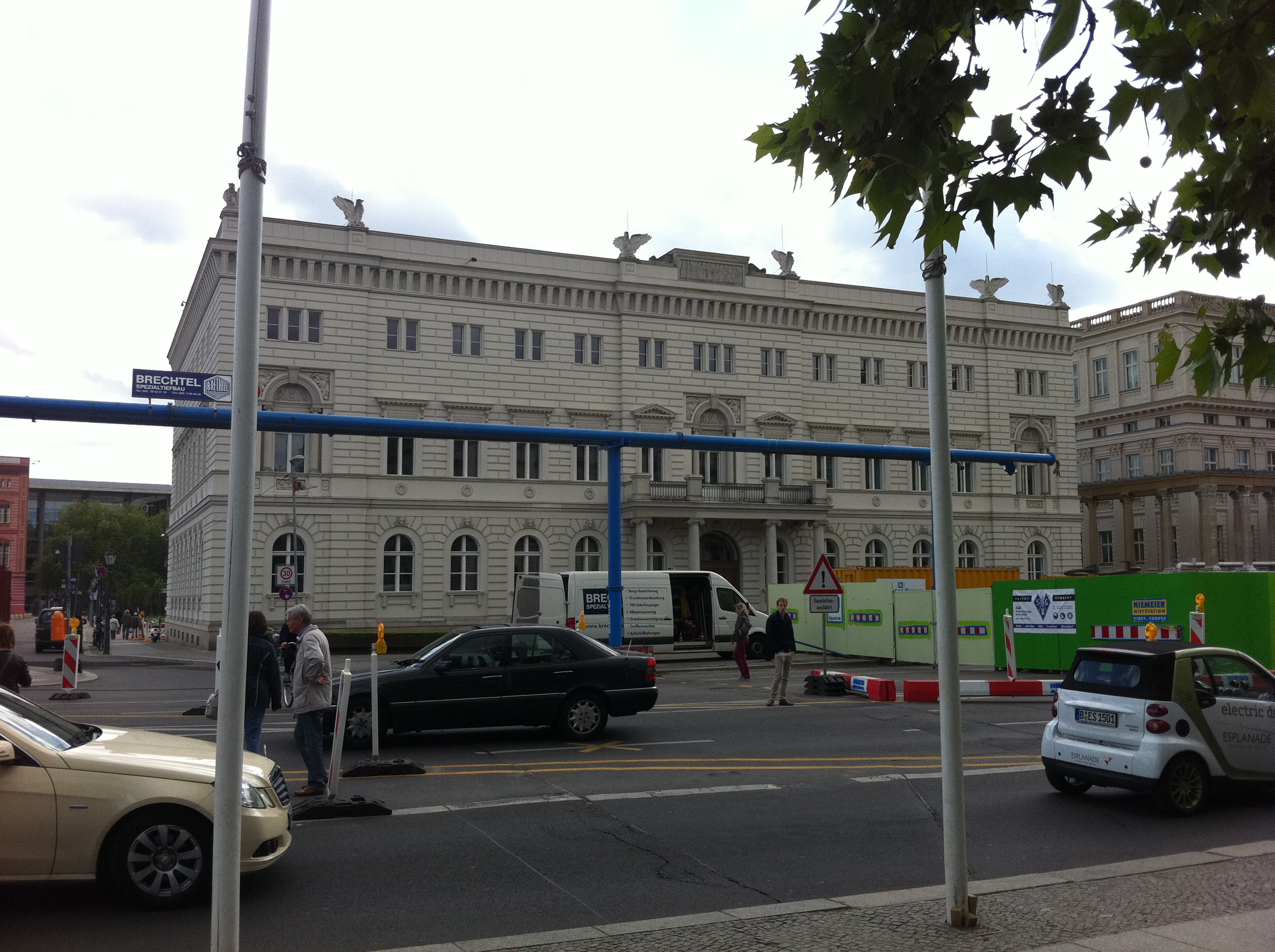
The room in which the first day of the event was supposed to take place was very modest in size - I was immediately embarrassed, so as soon as the participants began to pull in, they had to remove the wall - a cool sliding structure.
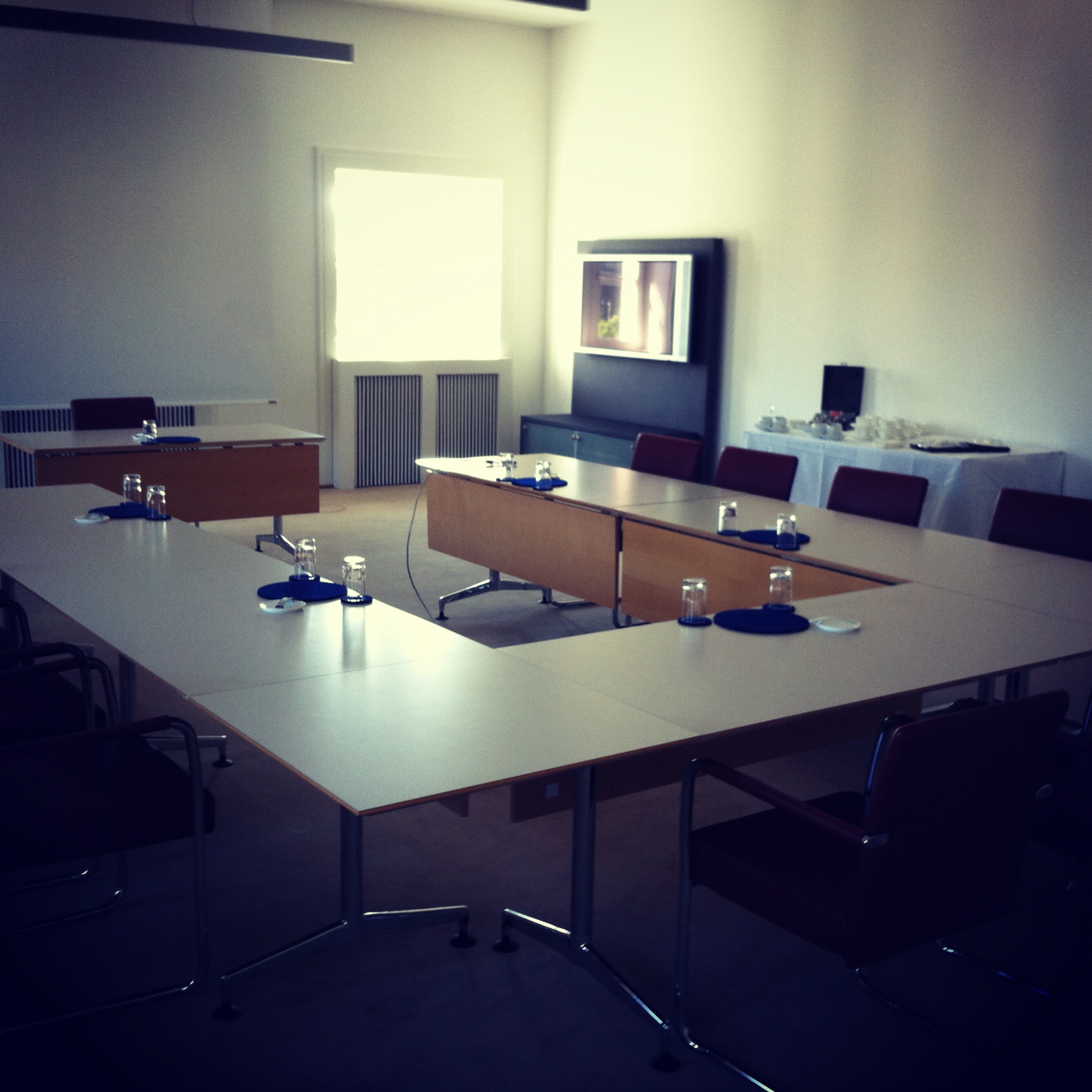
The following participants came only shortly before the start, and then all the rest quickly pulled themselves up, although the new people actively approached even after the start of the pitches. Actually the whole first day was devoted to preparing for the pitches and the next day in general. After uploading presentations to the shared directory on DropBox, we started presentations. The pitch was given for 3 minutes, then on the first day the participants were not strictly limited in time, let's finish the presentation, after which the organizers told the time, how long the presentation took and gave advice on how to improve and how to meet the 3 minutes. The first time I spent on the presentation about 5 minutes, and the slides themselves were clearly overloaded with information. All the councils were very practical and aimed at preparing as much as possible for the main pitch.
Immediately after my first speech, the founder of EnergyDeck , one of the startups participating in the event, came up to me - and said that he had worked for Google for several years, made many presentations in his life and knows how to “make candy out of my presentation”. I, naturally, accepted his help and, as it turned out, for good reason. After the end of the first day we went to dinner. During dinner, I talked in detail about the project, we walked through the slides and came up with a new presentation structure, throwing out 50% of the slides, leaving only the most interesting and revealing the essence of what has been done and how. I spent the whole evening doing slides and rehearsing a performance. As a result, I more or less learned to keep within 3 minutes and not get off, although not always :)
The second day began at 8-30. I came back a little earlier, but this time there were already quite a lot of people in the building and everything was ready for the event. The whole building was at the disposal of Seedcamp and its participants the whole day, a large number of waiters and other attendants worked. Before the official start, startups communicated with mentors and with each other. In general, the main task was to tell as many people as possible about your project and get feedback. True, before the pitches, most of the mentors made it clear that they wanted to hear the pitches first, and only then continue the conversation.
Mentors deserve special attention, because I have never met such a number of people of such high level in one place. To be honest, the number of representatives of venture funds with whom I managed to communicate on that day was 10 times more than the one with which I had spoken in my whole life. Many other participating startups said the same. Even before the event we were sent a list of mentors who will participate in the event. The list of approximately 100 people consisted mostly of partners, principals, etc. Representatives of venture companies, there were also representatives of companies such as Google, Microsoft, Amazon and Qualcomm, responsible for business development and new directions.
At 10 o'clock the pitches began. Strictly for 3 minutes, 30 seconds before the end of a careful warning. All noticeably pulled up their performances. After my speech, some approached and said that the difference between the first and second day was simply huge.
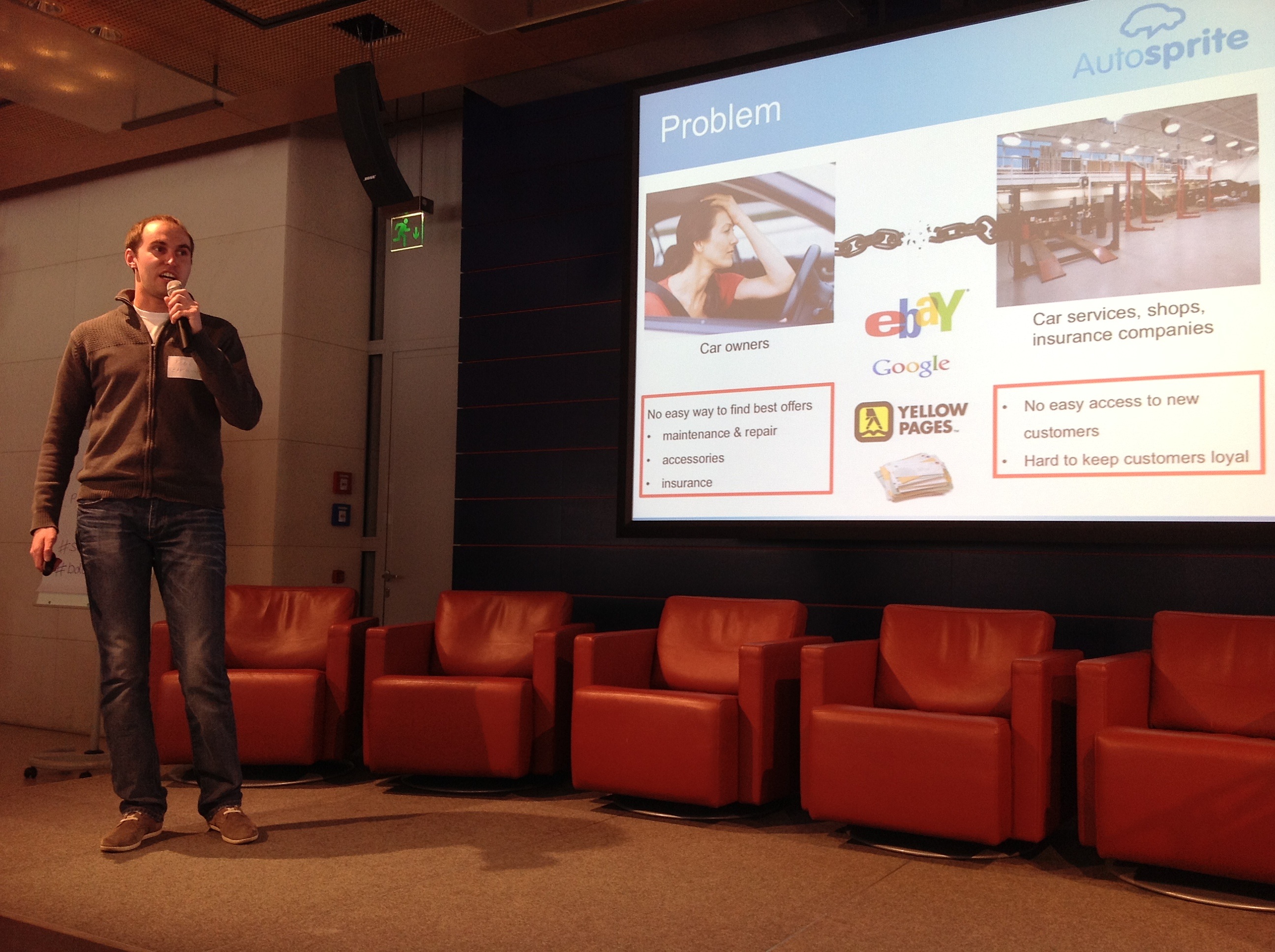
After the pitches, a small pause for coffee, presenting relaxed, shared impressions. Next is the panel with Fabian Heilemann, co-founder of the German coupon service DailyDeal, which Google bought at the end of last year, and its first investor. Fabian talked about how he managed to build a company worth 200 million euros over 2 years, how he worked 16 hours a day, seven days a week and how he fell in love with golf after selling the company :)
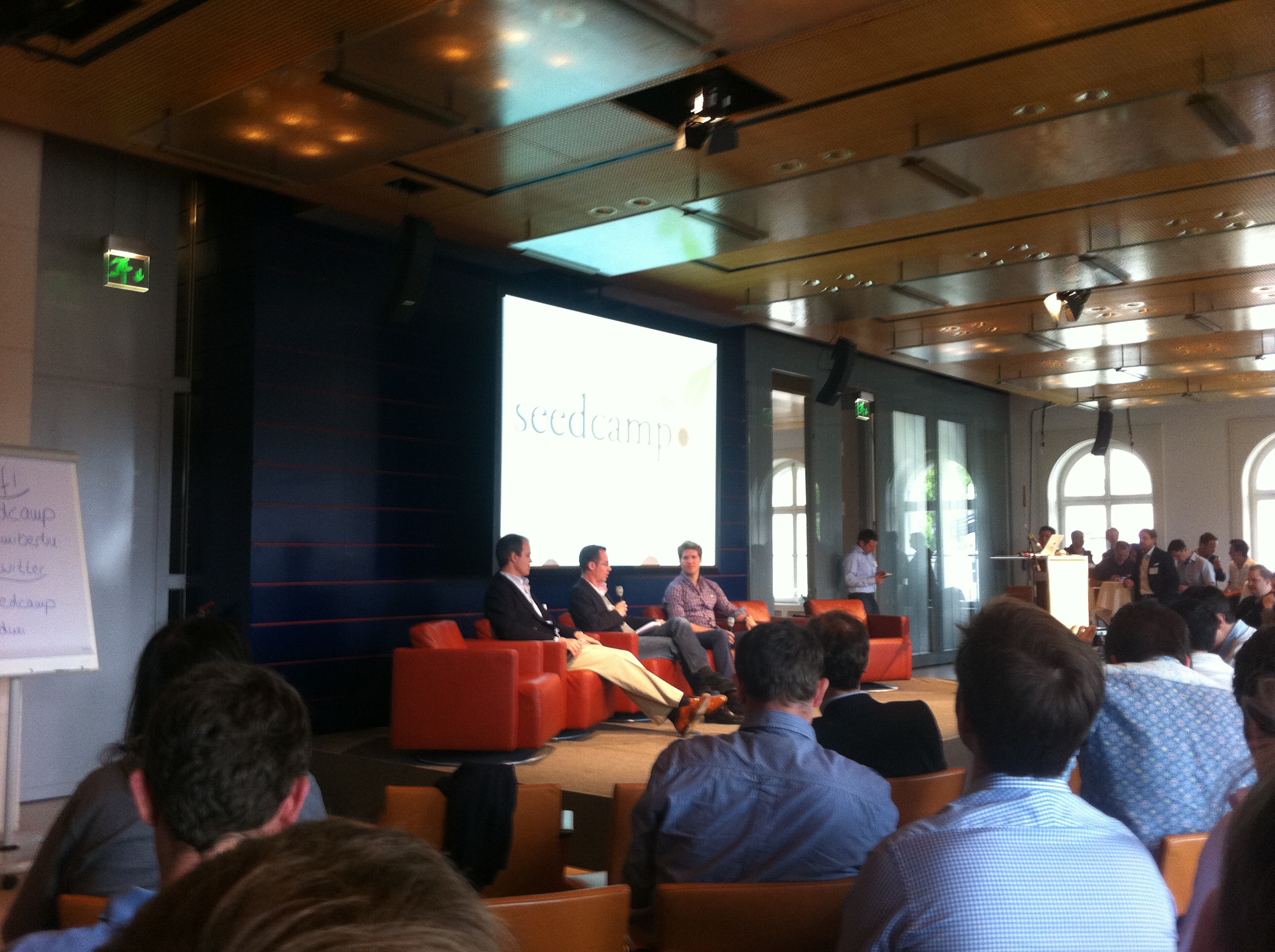
And the fun began in the afternoon. All mentors were divided into groups of 5-6 people and began communicating with startups. Each startup talked to 4 groups, with each group communicating with one startup for 45 minutes, so the conversation turned out to be very solid, there were many difficult questions, many good ideas. Mentors often said how they would build a business, ideas were generated on the go and immediately discussed. In 4 hours of such intensive you spread to the fullest. It is worth noting that it is you who should lead the discussion and provoke mentors, trying to get as much feedback as possible.
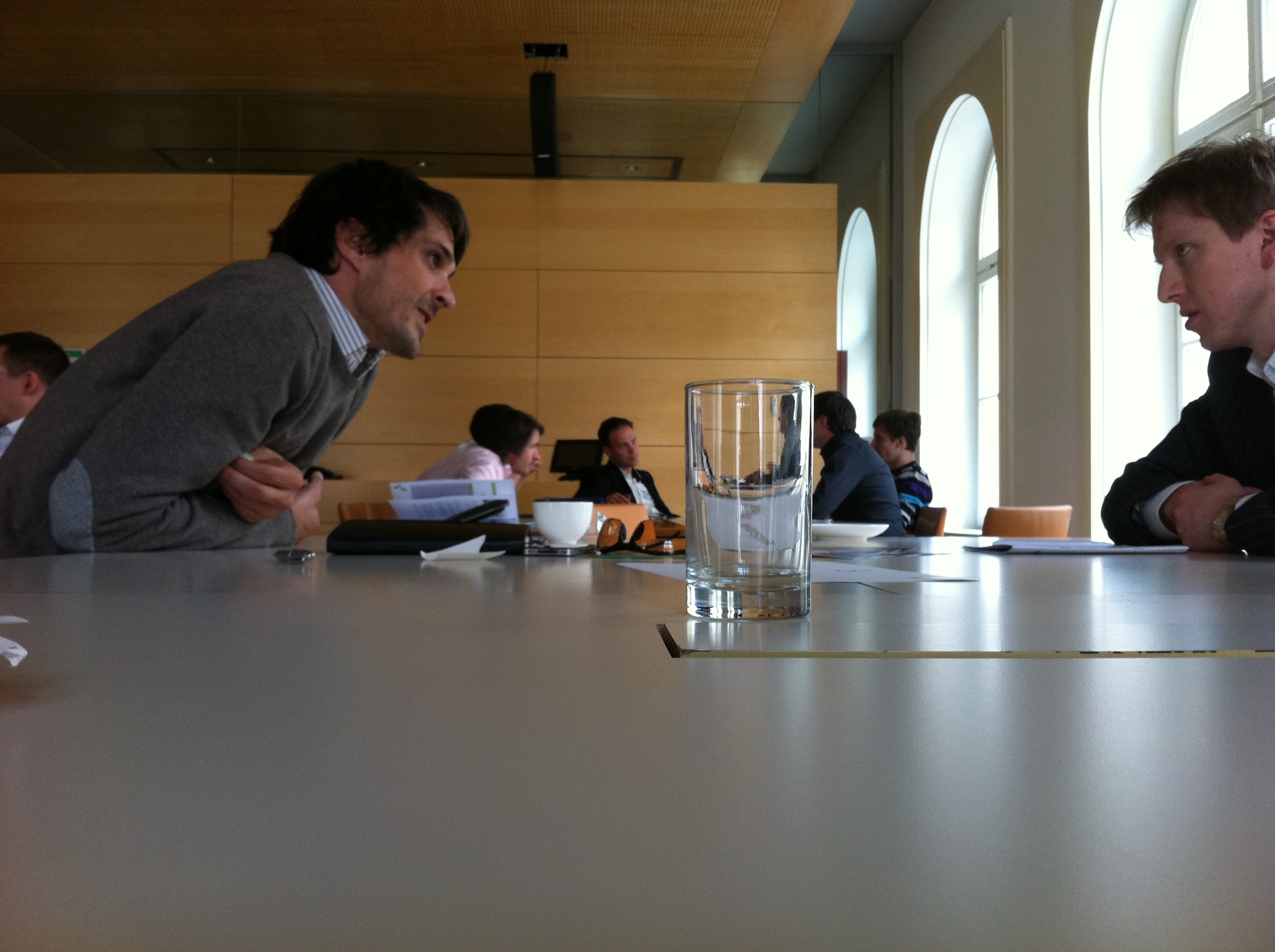
After mentoring sessions, mentors privately approached the projects that most interested them and told them in what way it would be possible to continue the communication.
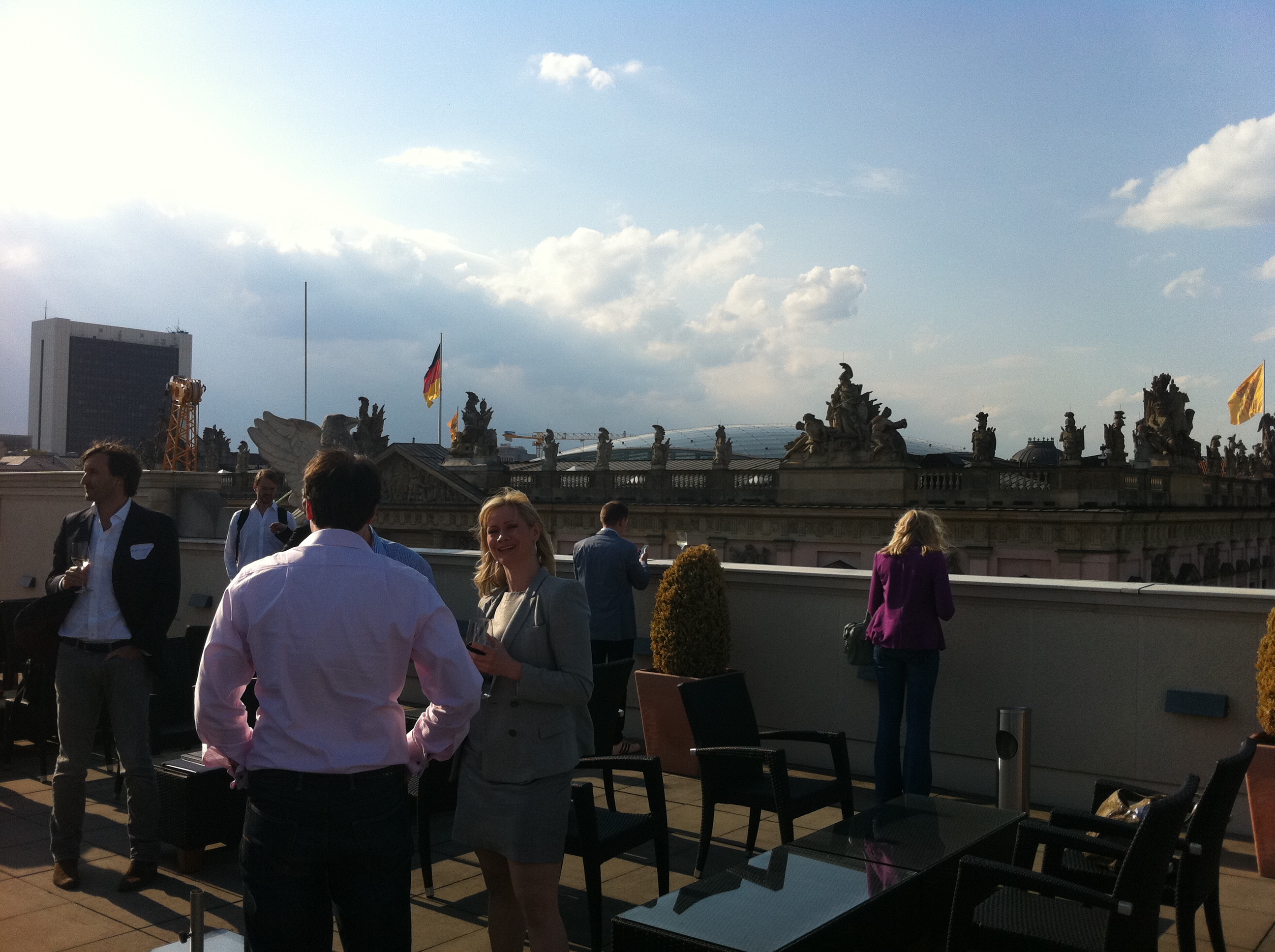
After the end of the official part, dinner and a party with the participation of the Pickers group, whose members are not only musicians, but also startupers.
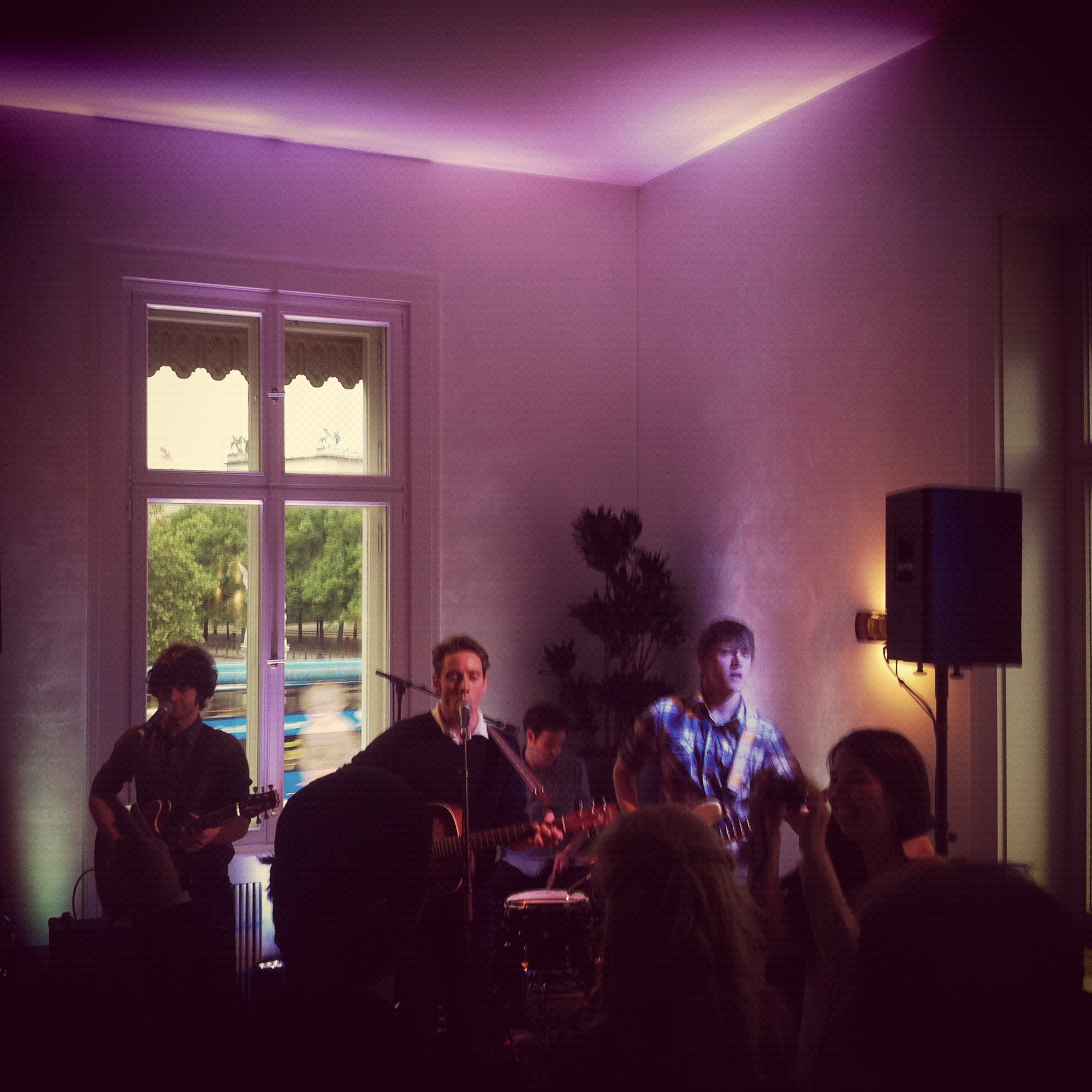
What is the result? A lot of contacts, a lot of positive emotions, slight fatigue and a great desire to move forward. Several mentors left their contact with the desire to continue communication. There is unequivocally an interest in Russia, although some quite frankly said “I'm sorry, but we are not working with Russia”. At the same time, some companies have Russian projects in the portfolio and even offices in Moscow. In general, everyone who believes that his project has a great future definitely advise you to participate. The next event will take place on June 12th in Zagreb. If you have any questions - I will be glad to answer in the comments.
Source: https://habr.com/ru/post/144093/
All Articles